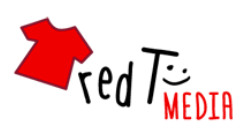Philosophy Gives Literacy A Boost
Many moons ago, I taught in a school for students who spoke English as their second language. Most were pretty fluent, but some were new enough that the thought of asking for directions or ordering a meal was downright nerve-wracking. When we decided to run a philosophy class, a bunch of these kids were part of the group, and I wondered how they’d manage with big questions and discussions about life, the universe, and everything.
They managed…really well actually. They typed furiously into their translators, asked friends for help, jumped up and down in their seat, wrote out extra notes, and when necessary, played charades and drew things. Why? They were inspired by the questions being asked, by the fact that they were allowed to construct an argument and critique those of others. “What do you think?” quickly became our mantra, and they were soon asking for extra reading material. They did whatever they had to do to make sure they were able to understand and communicate ideas, and it was thrilling to watch.
That was my first exposure to the amazing effect that pre-college philosophy can have on literacy. As any language teacher will tell you, reading, writing, and speaking are acts of risk-taking in which one is made vulnerable. Learners of second languages face additional hurdles, as do reluctant readers, shy children, and those with learning challenges. The trick is and always has always been to find something that motivates a little thinker to take these risks, something so engaging that it overshadows reluctance to participate. Parents and educators alike are often on the hunt for material that makes their kids want to put in the effort.
There is no greater source of interesting and captivating ideas than philosophy. Even small children have strong opinions about philosophical issues, as well as a drive to be heard, and an interest in hearing new and novel viewpoints. If the trick is to find something a child actually wants to read, write, and speak about, philosophy is the wellspring. It grows with a child, and presents something for just about every area of interest. Most importantly, it’s fun!
Let the thinking (and reading, writing, and speaking) begin!
(from Red T founder and author, Amy Leask)



